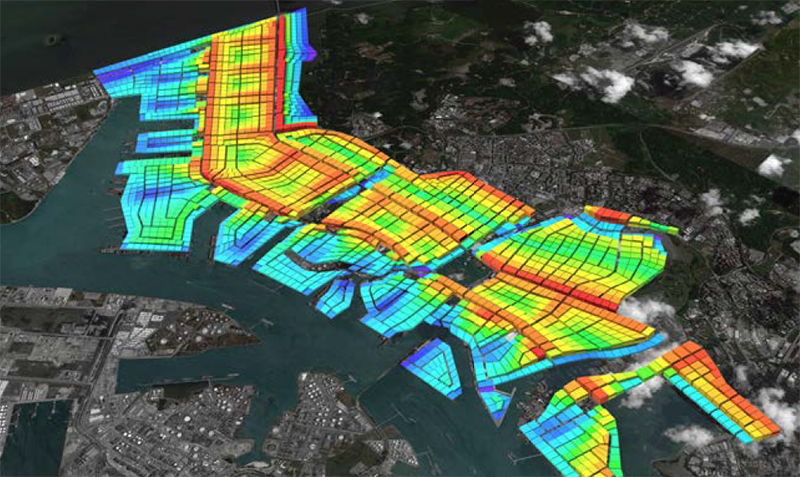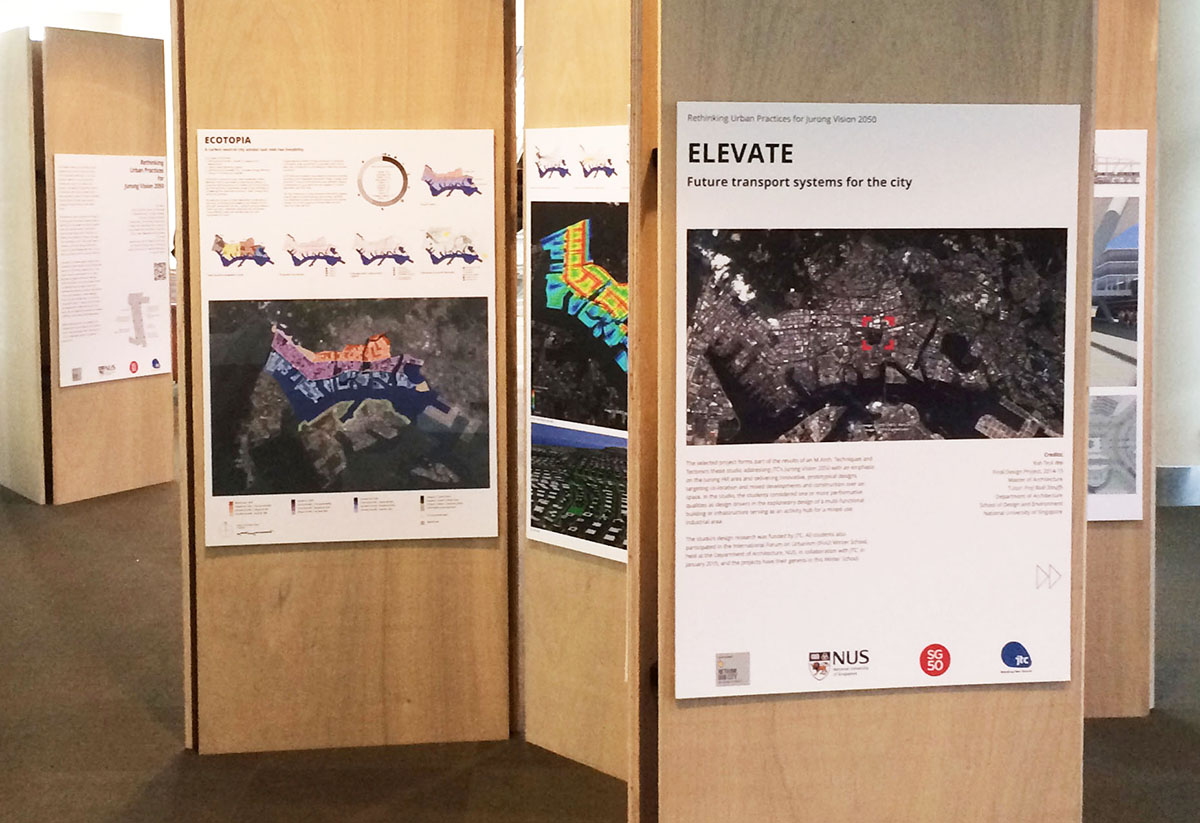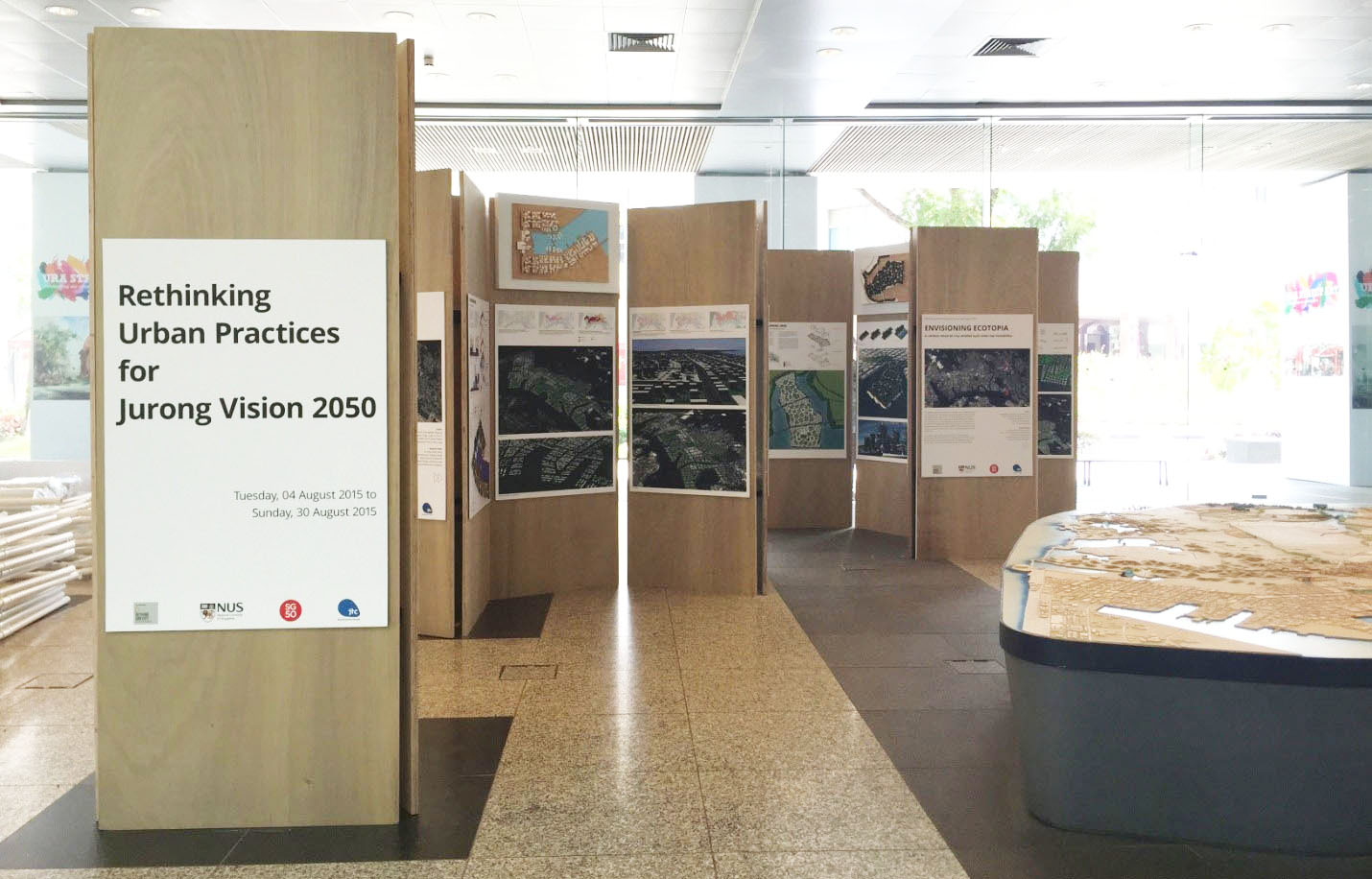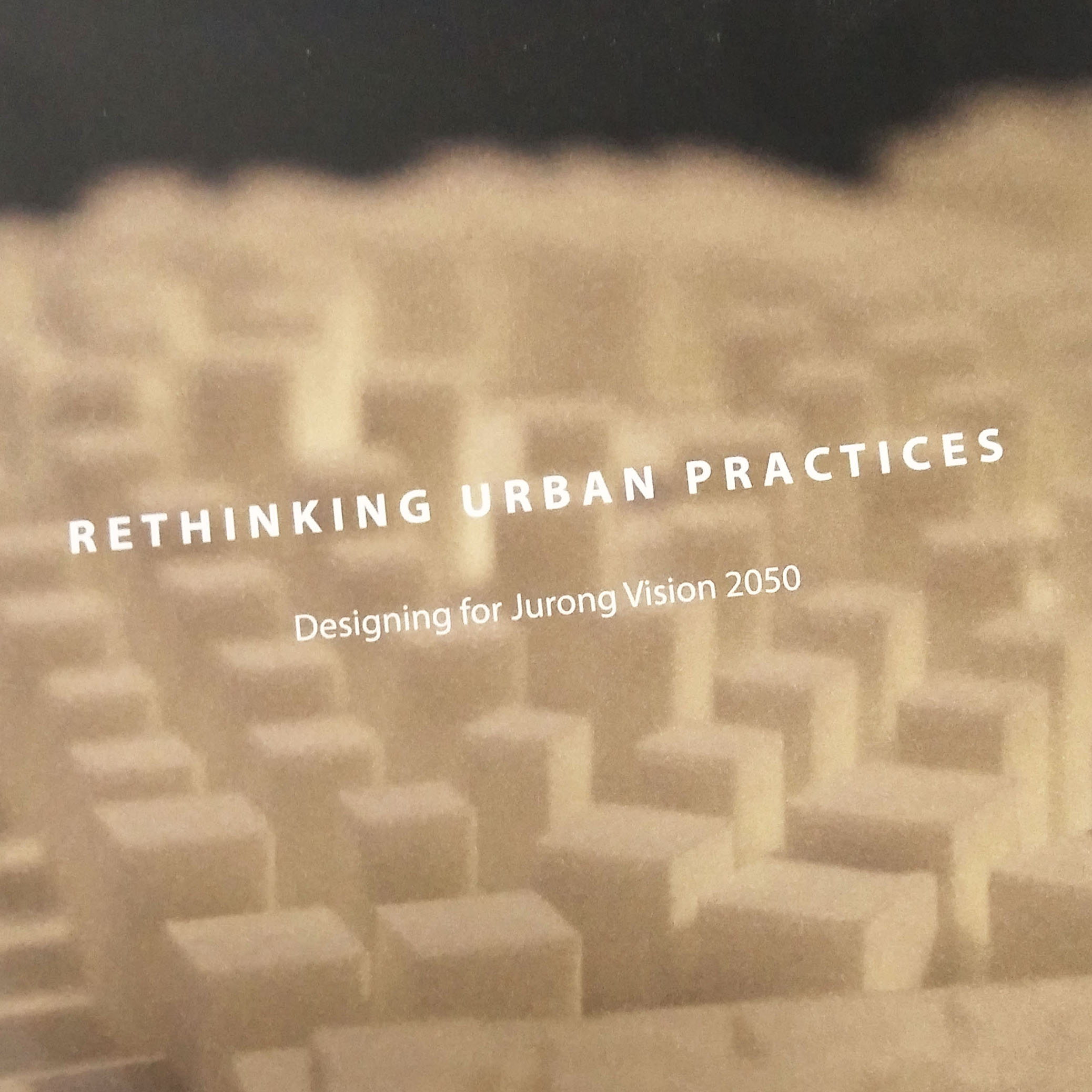Design Automation Lab
A research lab developing methods and tools for supporting design decision making.
Jurong Vision
- Title: Jurong Vision: Rethinking Our Urban Planning and Design Process
- Project Period: 1 September 2014 to 31 November 2015
- Funding Source: SG50
- Principal Investigator: Patrick Janssen (PI)
- Co-Investigators: Rudi Stouffs (NUS), Zhang Ye (NUS)
- Collaborators: Jurgen Rosemann, Oscar Carracedo, Zhang jurong_vision
- Budget: SGD $25,000
Research Overview
The research developed new computational workflows for supporting decision making at the urban and regional scale. With the increasingly complex nature of future master plans, there is a need for new urban planning and design workflows that enable planning and design options to be systematically developed, evaluated, and analysed.
The workflows aim to address complex challenges that require new thinking about our city and their planning and design. They support the exploration and development of alternative visions of the future city, and enable the evaluation and analysis of different urban planning and design options. The workflows were demonstrated through a series of studio projects.

Research Outcomes
The research consisted of five stages:
Stage 1 - Data gathering (October – December 2014): A detail 400 MB GIS data set was developed for the Jurong Industrial Estate, including GIS layers for a variety of data types.
Stage 2 - Workshops (January 2015): A series of workshops were conducted, open to NUS students participating in the IFoU winter school. Four workshops were given:
- Workshop 1: ArcGIS for Jurong Vision 2050.
- Workshop 2: Generative Design with CityEngine.
- Workshop 3: Parametric Urbanism with Houdini.
- Workshop 4: Urban Visualization with Unity 3d.
Stage 3 - Workflow Development (January 2015): The digital workflows were adapted and applied in the IFoU winter school.
Stage 4 - Design Methods Analysis (February– April 2015): Once the IFoU winter school was completed, the more complex parametric modelling workflows were applied in the MUP and MAUD studios during Semester 2 of AY2014/2015.
Stage 5 - Case Study Analysis (May – July 2015): A number of project were selected for further analysis and development using further enhanced computational workflows:
- “Eden of Jurong 2050” (Lin Xiong) and “Small Hill Town” (Elvira Tan) from Patrick Janssen Thesis Studio
- “The Ascent” (Chiang Wei Han) and “Elevate” (Koh Teck Wei) from Rudi Stouffs Thesis Studio
- “Envisioning Ecotopia” from MUP studio (Andrea Rachmat, Tey Hui Ping Serene, Delon Leonard, Wu Xin Peng, Loh Sze Sian), and further developed using digital workflows.
- “Urban Metabolism” from MAUD studio (Ravish Kumar, Tulika Agrawal, Yuting Liu), and further developed using digital workflows .
Exhibitions
The work was exhibited in three separate exhibitions:
- “Rethinking Our City for Singapore’s Next 50 Years” at The URA Centre, 23 July - 13 August 2015
- “Rethinking Urban Practices for Jurong Vision 2050” at the National Library Building (7th floor), 4-30 August 2015
- “Rethinking Urban Practices for Jurong Vision 2050” at The URA Centre, 31 August - 19 September 2015



Book: Rethinking Urban Practices
The outcomes of the research were also published in a book.
